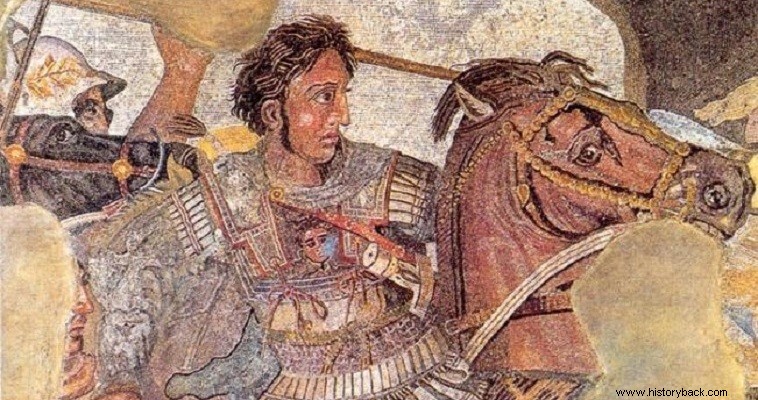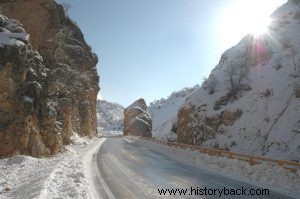
After the overwhelming victory over the Persians at Gaugamela, Alexander wanted to complete the conquest of the easternmost provinces of the Persian empire. Alexander in the winter of 331-330 BC. had already conquered Susa.
His aim was to move through the "Royal Road" towards Persepolis and Pasargades as he had information that the Persian king Darius III Kodomanos was trying to form a new army in Ecvatana.
The satrap of Persis, Ariovarzani, was ordered by Darius to restrain the Greeks, gaining time to form this army. The Persian satrap took advantage of the fact that Alexander had to pass through the difficult passes of Mount Zagros in the middle of winter.
Alexander with part of his army moved towards the Persides or Persian Gates, a narrow mountain pass on Mount Zagros. Ariovarzanis had fortified the passage, not at its entrance, but at its exit, almost, building a wall as well.
Alexander at the head of about 17,000 men entered the pass without encountering resistance reaching the small valley of Tange Meiran. Ariovarzanis had deployed his 40,000 – according to Arrian, 25,000 according to Diodorus Sikeliotis and Curtius – men near the present village of Sesmekh Senar.
At that point the road turned southeast and became very narrow, being only a few meters wide. At the same time, Ariovarzanis had sent his men along the road in order to roll rocks against the Greeks, when they would enter the strait for good.
Trap…
So it happened. The Greeks suddenly heard the terrifying sound of falling rocks and at the same time began to be hit by Persian arrows. The Greek force suffered serious losses and Alexander thought of retreating. But the narrow road did not help. Finally, Alexander managed to lead his men to the exit leaving behind his dead, a fact incompatible with the Greek ethos.
For the first time, Alexander found himself in an impasse. He remained almost a month in front of the straits looking for a solution. After all, it was winter and extorting the strait was becoming even more difficult.
However the solution was given by a shepherd, or according to other sources a prisoner of the Persian army. He knew a path that led behind the Persian positions. It was a whim of luck that Alexander also reversed the battle of Thermopylae...
…and victory
The accounts of ancient writers differ as to the manner in which Alexander forced the passage. The most probable version, however, wants him, at the head of the elite Hipsistas, the foot soldiers of Perdiccas, the famous Arian javelinmen and the Agamemnon of the Companion horsemen, to move in the night, following the captive, through an impassable path, on the backs of the Persian.
He immediately attacked and overwhelmed the Persian outposts. He then waited for Crateros to attack head on. At first light the two Greek bodies attacked the Persians simultaneously. The latter fought desperately.
Arivarzanis, according to some sources, was trapped but fought to the end and fell with honor. According to others he caught up and retreated but was later arrested. A third version has him killed later outside Persepolis. In any case the Persian force was destroyed. The way for Alexander was now open.
The battle at the Persian Gates was the bloodiest for Greek arms in Asia. Not by chance, almost all historians, ancient and modern, consider it the analogue of Thermopylae. Greek losses, depending on the source, are said to reach up to 7,000 dead and wounded, an excessive number. Accordingly the Persian body was destroyed.
Alexander's victory had the effect of opening the passage to the heart of the Persian Empire and Persepolis. The Greeks reached the great and rich Persian city which was plundered and destroyed. It was an act of revenge for the destruction of Athens by Xerxes.

The Persian Gates at their narrowest point.
